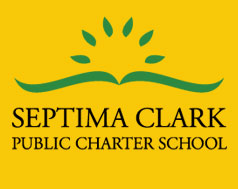NACSA Blog
Press Releases
 |
National Association of Charter School Authorizers Applauds Bipartisan Congressional Vote on Charter School QualityWith today’s overwhelming bipartisan approval of the Success and Opportunity through Quality Charters Act (H.R. 10) by the full House Education and the Workforce Committee, the National Association of Charter School Authorizers … |
 |
NACSA Applauds Alabama Vote to Approve Charter School LegislationThe National Association of Charter School Authorizers (NACSA) congratulates the Alabama General Assembly for passing Senate Bill 45 to become the most recent state to introduce charter schools as high-quality education options … |
 |
NACSA Receives National Grant to Strengthen Charter School Quality NationwideFor more than a decade, the National Association of Charter School Authorizers (NACSA) has led the effort to improve quality within the charter school community by helping authorizers set high standards, facilitate … |
 |
National Association of Charter School Authorizers Commends RSD Action to Deny Charter School’s RenewalCharter schools are about more than just test scores. They also have an obligation to treat all students fairly and appropriately and to spend public money properly. Most charter schools do just … |
 |
NACSA Recognizes Step in the Right Direction To Improve Michigan’s Charter School AuthorizingThe National Association of Charter School Authorizers (NACSA) recognizes today’s release of a study by the Education Trust—Midwest (ETM) entitled “Accountability for All: The Need for Real Charter School Authorizer Accountability in … |
 |
New CREDO Study Finds Massachusetts Charter School Students Making Greater GainsA new report from the Center for Research on Education Outcomes at Stanford University (CREDO) “found that the typical student in a Massachusetts charter school gains more learning in a year than … |
 |
NACSA Commends KIPP on Strong Student AchievementNACSA’s president and CEO, Greg Richmond, issued the following statement regarding the KIPP Middle Schools: Impacts on Achievement and Other Outcomes study released yesterday by Mathematica Policy Research: “Today’s Mathematica Policy Research study on the positive … |
 |
KIPP Impact: “Statistically significant, and educationally substantial”Mathematica Policy Research, a nonpartisan research firm, has released a new study of KIPP middle schools. The study, funded by Atlantic Philanthropies, found that “The average impact of KIPP on student achievement is … |
 |
UFT Charter School Gets Improve-or-Close RenewalThis morning, the Charter School Committee of the Board of Trustees of The State University of New York (SUNY), the governing body of the SUNY Charter Schools Institute decided to renew the charter of U.F.T. … |
 |
More on Authorizer Accountability in MichiganEastern Michigan University’s Charter Schools Office Director Malverne Winborne weighs in on the recent report commissioned by the Michigan State Board of Education comparing the performance of authorizer portfolios across the state. … |
 |
Postcard from the Statehouse: Austin, Texas“Postcard from the Statehouse” will provide occasional updates on the travels of NACSA’s Policy Team as they advocate for strong authorizer policies across the country. Greetings from Texas! Yesterday, the Senate Education Committee heard … |
 |
No Exit?Imagine if you were in a contractual relationship with a service provider, and the provider told you that you couldn’t end the contract. A recent case in Florida illustrates why NACSA recommends … |
 |
Access is Not OptionalBy design, charter schools are supposed to be open to all students. The idea is that rather than gaining admission based on their zip code or test scores, charter school students are … |
 |
Accepting AccountabilityIt is always disappointing when charter schools that are not meeting their performance expectations fight efforts to hold them accountable. We shouldn’t forget, though, that some charter schools will live up to … |
 |
Four Tips for Cage-Busting AuthorizersRick Hess’s new book, Cage-Busting Leadership is out. Quality charter school authorizing often involves a lot of cage-busting. The vast majority of authorizers work in school districts–systems that are set up in … |